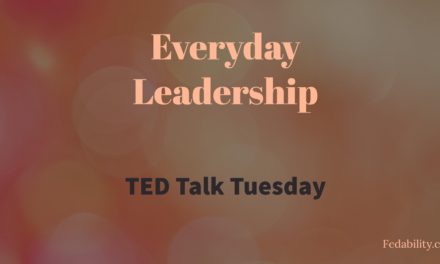Depending on whom you listen to there’s either a huge gap in the leadership pipeline or a resurgence in Senior Executive Service (SES). My opinion is that it may be both. With the increased interest in senior leadership roles comes terrible advice on becoming a federal executive (i.e., SES). This bad advice is leading to a gap in the pipeline.
Here’s a list of the worst advice on becoming SES I’ve heard:
- Go to one of the SES residential or year-long leadership programs. Many people who show up in my office want the agency to fund them to go to one of these top-dollar programs. They seem to see this as the singular solution to putting them on the path on becoming SES. The truth is that these programs are only a small part of a total plan of seeking a career as a government executive. The programs are great introductions to the Executive Core Qualifications. They are potentially great networking opportunities. Keep in mind, the people in those programs also want to be SES. Thus, your classmates are not positioned to help you into one either.
- Stay in the same agency your entire career. Admittedly there’s a hold-over belief that tenure is rewarded. There are some SES who got their position by moving up the ranks. However, it’s increasingly infrequently the case. Instead, by moving to different agencies throughout the Federal government, you gain wider experiences and build a broader social/professional network. And, don’t forget that the SES was originally created to build a cadre of leaders that move across agencies as needed.
- Get a higher education degree. This is advice I just recently heard. This may be true for scientific positions where specialized education is needed. But for the vast majority of federal executive positions, higher education degrees aren’t the make-or-break factor in getting a SES position. If you want the degree anyway or need a good reason to get one, go for it. But, an SES position shouldn’t be the major driver of a masters or doctorate.
- Don’t tell anyone in your leadership chain. I’m not certain where this advice stems from. Perhaps there is a concern that leadership will see them as less dedicated to their current position. The key is to tell the right people. Find someone in your agency or in your network that is or was an SES to ask for mentoring advice. Get the real scoop on what it means to be a government executiveand the kind of work they do. Ask them how they got to where they are. The right mentors will help you find more opportunities to grow.
- Wait until you’re a GS-14/15 to consider an SES position. This too may be a hold-out from the past. Some more tenured employees believed lower graded people weren’t willing to put in their time. Perhaps a GS-9 is too-big-for-their-britches if they start talking about an SES career. The reality is the earlier in someone’s career the better. That way you can build a solid resume of relevant ECQ experiences over time. Most important of all, this stronger resume and wider experiences should help you more successfully apply to an SES position.
I’d love to hear any other myths or good/bad advice on becoming a federal executive or SES in the comments below!
Like this post? Consider signing up for our weekly newsletter. Each week you’ll get updates on our newest posts. You’ll also receive access to our newest free give-aways. I promise not to spam you or sell your contact information to anyone.





